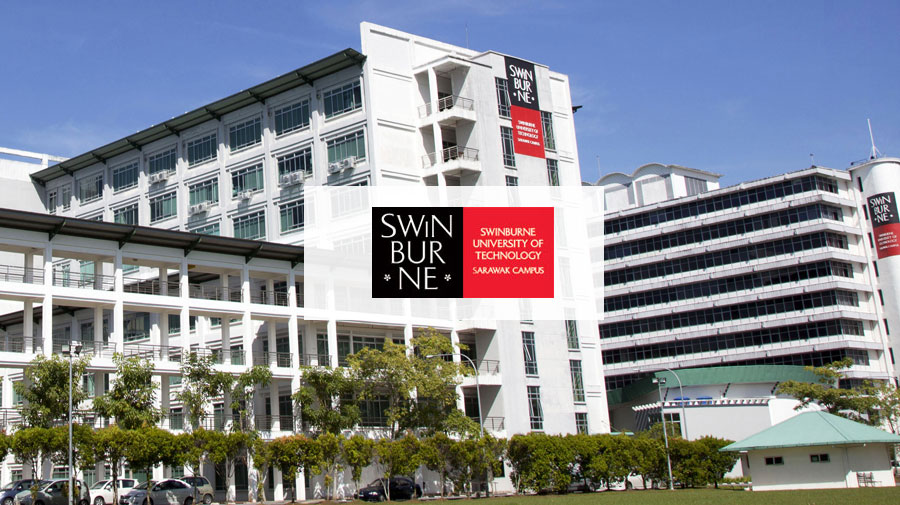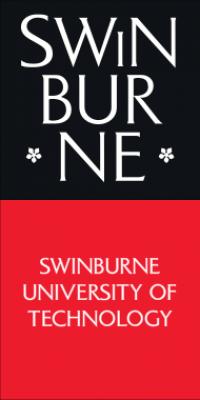Master of Supply Chain Innovation
The Master of Supply Chain Innovation invites students to think innovatively about supply chain management. The course uniquely combines creative thinking skills and established supply chain theory with knowledge of the latest emerging technologies.
Advance your knowledge in supply chain concepts, apply decision-making methodologies, analyse business models, and innovate using your own creative solutions. Additionally, you’ll also learn the fundamentals of applied research.
On completion of the course, graduates will have the skills to confidently lead supply management change.
Course description
The Master of Supply Chain Innovation uniquely combines key elements of supply chain management, innovation and business information systems to enable graduates to improve today’s supply chains and to equip them for the changing needs of the industry.
As competition continues between global supply chains in response to customer demand volatility and increasing customer expectations, supply chain managers need to be increasingly innovative in order to gain competitive advantage. Having appropriately skilled people, who are equipped to make the right decisions, is essential. This course is designed to assist students to transition into strategic management roles.
The course includes innovation, design thinking, supply chain management, logistics, lean six sigma methodologies and big data analytics. It has a strong focus on business improvement and is designed to equip students with the capacity to apply innovative thinking to supply chain networks.
The Master of Supply Chain Innovation forms the final stage in a three-stage nested suite of programs consisting of:
- Graduate Certificate of Supply Chain Innovation (GC-SCI) (GC-SCI)
- Graduate Diploma of Supply Chain Innovation (GD-SCI) ^
- Master of Supply Chain Innovation (MA-SCI) or
- Master of Supply Chain Innovation (Advanced) (MA-SCIADV)
^ Students are unable to enrol directly into the Graduate Diploma of Supply Chain Innovation but it is available as an exit award.
This course is for working professionals. That’s why we offer it in Intensive Mode. It’s an efficient and faster way to complete a postgraduate qualification with minimal impact on your professional and personal life. Units (subjects) are either delivered after work hours or on Fridays or Saturdays, and run throughout the year in six week teaching periods instead of the usual 12 week semesters. This means you can complete more units and graduate faster, or take breaks when you need to.
Campus Information
Hawthron
Main Campus - All programs run here
Intakes
- Feb Deadline: May
- July
Application Processing Time in Days: 10
Application Process
Minimum English Language Requirements
| English Level Description | IELTS (1.0 -9.0) | TOEFL IBT (0-120) | TOEFL CBT (0-300) | PTE (10-90) | |
|---|---|---|---|---|---|
| Expert | 9 | 120 | 297-300 | 86-90 | |
| Very Good | 8.5 | 115-119 | 280-293 | 83-86 | |
| Very Good | 8 | 110-114 | 270-280 | 79-83 | |
| Good | 7.5 | 102-109 | 253-267 | 73-79 | |
| Good | 7 | 94-101 | 240-253 | 65-73 | |
| Competent | 6.5 | 79-93 | 213-233 | 58-65 | |
| Competent | 6 | 60-78 | 170-210 | 50-58 | |
| Modest | 5.5 | 46-59 | 133-210 | 43-50 | |
| Modest | 5 | 35-45 | 107-133 | 36-43 | |
| Limited | 4 | 32-34 | 97-103 | 30-36 | |
| Extremely Limited | < 4 | < 31 | < 93 | < 30 |
Job Opportunity Potential
-
Working at Swinburne comes with a wide range of benefits that are continually reviewed and refined. These include flexible working arrangements, staff discounts and career development opportunities
Join a vibrant community of academics, teachers, professionals and students, where your work can directly impact society.
Swinburne delivers excellence in teaching and research in science, technology, business, law, design and innovation. As a multi-sector provider, there are opportunities to apply for jobs in higher education, vocational education and pathways. There are also opportunities marketing and communications, customer service, information technology, finance, human resources and administration.
Our mission is to create economic and social impact through science, technology and innovation. In doing so, we want to attract those with similar values who can help us make a difference.
As an employer we promote diversity, support career development, provide flexibility and offer competitive salary packages.
PSW Opportunity
- 2 Years PSW available after completion of 2 years Master's Degree.
- 3 Years PSW available after completion of Master by research Degree.
Admission Requirement / Eligibility Criteria
- a Bachelor degree or
- a Graduate Certificate or Graduate Diploma in an approved cognate field following on from a Bachelor degree, or
- a qualification deemed to be equivalent to any of the above.
Approved English Language Tests and Minimum Required Entry Scores for undergraduate and postgraduate courses
Provider / Program
Level of Entry
Undergraduate
(excluding courses listed in note (1) below)
Undergraduate
education
law
professional degrees
psychology honours
psychological science
Undergraduate
Bachelor of Nursing
Postgraduate coursework
Psychological science honours
Bachelor of Exercise & Sport Science
Master of Dietetics
Master of Occupational Therapy
Master of Physiotherapy
Masters of Teaching (Primary) & (Secondary
IELTS (Academic Module)
Overall 6.0
No individual band below 6.0
Overall 6.5
No individual band below 6.0 Overall 7.0
No individual band below 7.0^^ Overall 6.5
No individual band below 6.0 Overall 7.0
No individual band below 7.0 Overall 7.0, No individual band below 7.5 in speaking and Listening
PTE Academic
50
(no communicative skill less than 50)
58
(no communicative skill less than 50) 65
(no communicative skill less than 65)^^ 58
(no communicative skill less than 50) 66
(no communicative skill less than 58) 66
(no communicative skill less than 58)
TOEFL iBT
64
(no less than 13 in reading, 12 in listening, 18 in speaking, 21 in writing)
79
(no less than 13 in reading, 12 in listening, 18 in speaking 21 in writing)
94
(no less than 24 for reading, 24 for listening, 23 for speaking, 27 for writing)^^
79
(no less than 13 in reading, 12 in listening, 18 in speaking 21 in writing)
94
(no less than 25 in reading, 24 in listening, 23 in speaking, 27 in writing)
94
(no less than 25 in reading, 27 in listening, 25 in speaking, 27 in writing)
TOEFL iBT Home Edition Test^
64
(no less than 13 in reading, 12 in listening, 18 in speaking, 21 in writing)
79
(no less than 13 in reading, 12 in listening, 18 in speaking 21 in writing)
C1 Advanced*
169, no band less than 169
176, no band less than 169 - 176, no band less than 169 185, no band less than 185 185 (No band less than 185)
Common European Framework
B2
B2 - B2 C1 C1
Linguaskill – General^
Overall score of 160-179 with no band less than 160
Duolingo English Test^
Overall score of 105-115
Overall score of 120-125 - -
Occupational English Test (OET)
Minimum of B (>350 marks) in each of listening, reading, writing and speaking
- Course Code: 102654B
- Course Type: Full Time
- Course Level: Masters/PG Degree
- Duration: 02 Year
-
Total Tuition Fee:
88680 AUD
Annual Cost of Living: 24505 AUD
Application Fee: N/A
Similar Programs
- Master of Business Information Systems Specialising in Research at Swinburne University of Technology (SUT)
- Master of Business Administration Specialising in Social impact at Swinburne University of Technology (SUT)
- Master of Human Resource Management at Swinburne University of Technology (SUT)
- Master of Financial Technologies at Swinburne University of Technology (SUT)
- Master of Finance at Swinburne University of Technology (SUT)
- Master of Research [Business] at Swinburne University of Technology (SUT)

